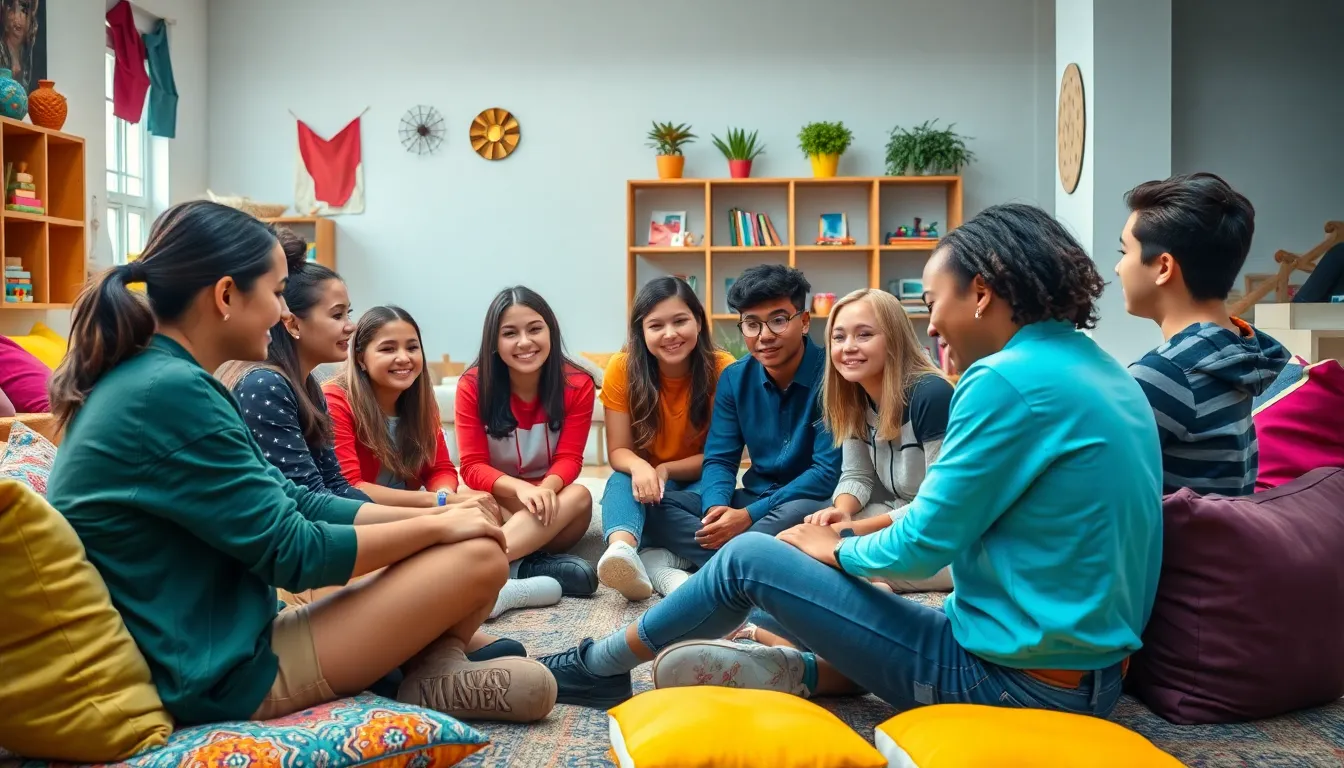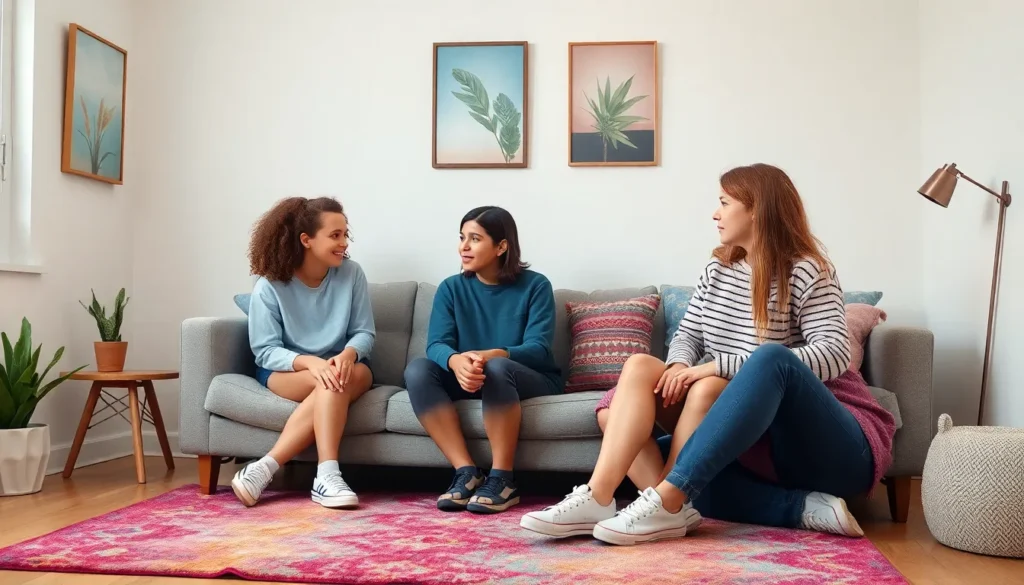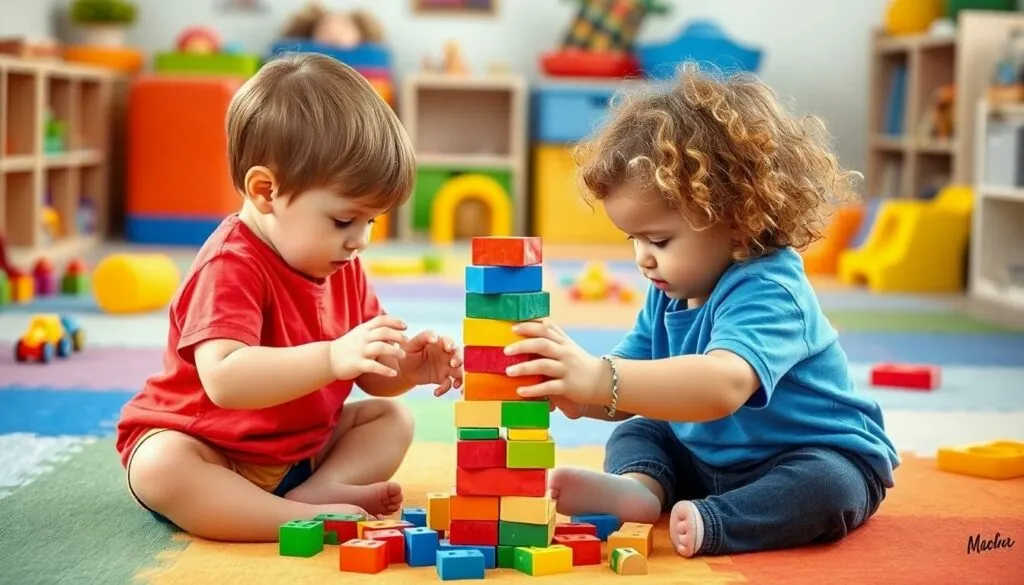In a world where social media likes can make or break a teen’s day, mental health has never been more crucial. With pressures piling up like dirty laundry, workshops designed for teens are stepping in to save the day. These engaging sessions offer a safe space for young minds to explore their feelings, learn coping strategies, and maybe even laugh a little along the way.
Imagine a room full of teens cracking jokes while tackling serious topics like anxiety and self-esteem. It’s not just about sitting in a circle and sharing feelings; it’s about building resilience and finding the humor in life’s challenges. By participating in these workshops, teens gain tools to navigate their emotional landscapes, all while connecting with peers who get it. Who knew mental health could be this fun?
Table of Contents
ToggleOverview of Teen Mental Health Workshops
Teen mental health workshops focus on essential skills teens need for well-being. These sessions create safe spaces where participants can express emotions freely. Understanding the complexities of social media influences is crucial. Workshops often incorporate interactive activities that facilitate learning through peer connections.
Evidence from studies suggests that engaging in group settings enhances emotional resilience. Developing coping strategies during these sessions helps teens navigate their challenges effectively. Workshops might cover common topics like anxiety, self-esteem, and stress management.
Facilitators often use humor to ease tension, promoting an enjoyable environment. Additionally, participants leave with practical tools they can apply in daily life. Workshops emphasize building community support, ensuring every teen feels included. Feedback mechanisms allow attendees to share their experiences, fostering continuous improvement.
By highlighting the importance of mental health, these workshops serve as vital resources for adolescents. Resources available during workshops provide valuable information on mental health services. Teens also learn the significance of seeking help when needed, reducing the stigma around mental health discussions.
Incorporating diverse topics, workshops tailor content to meet the interests and needs of teens. Informal discussions paired with structured activities maintain engagement and hold attention. As a result, workshops effectively contribute to enhancing overall mental wellness among young individuals.
Importance of Mental Health for Teens

Mental health plays a crucial role in a teen’s development. Positive mental health enables healthy emotional functioning, effective coping skills, and resilience in facing life’s challenges.
Emotional Well-Being
Emotional well-being significantly influences daily life. Healthy emotional states lead to better academic performance and social interactions. Teens encounter various stressors that can trigger anxiety, sadness, or frustration. Workshops create spaces for youths to express those emotions openly. Participants learn coping strategies tailored to their experiences. Techniques such as mindfulness or journaling become valuable tools for managing feelings. Workshops encourage peer support, fostering a sense of belonging. Ultimately, developing emotional intelligence contributes to overall well-being.
Social Connections
Teens thrive on social interactions. Building strong relationships enhances mental health and fosters a sense of community. Workshops offer opportunities to connect with peers, which is essential during adolescence. Shared experiences create bonds that reduce feelings of isolation. Through collaborative activities, participants gain trust among each other. These connections empower teens to seek help when needed, breaking down stigma associated with mental health. Strengthening social networks guides teens toward positive emotional outcomes, making these workshops vital for their mental health journey.
Types of Workshops Available
Various workshops focus on enhancing teen mental health. These sessions address critical areas like personal development and community connections.
Skill-Building Workshops
Skill-building workshops target essential techniques for managing emotions and fostering resilience. Participants engage in activities that teach coping strategies such as mindfulness, stress management, and effective communication. Practical exercises enhance self-awareness, empowering teens to handle challenges. Workshops incorporate role-playing and interactive learning, making the experience both informative and enjoyable. This approach cultivates a toolkit that includes skills for active listening and problem-solving, ensuring participants leave with valuable resources for daily life.
Support Group Workshops
Support group workshops create safe spaces for teens to share their experiences. During these sessions, participants discuss challenges like anxiety, self-esteem, and social pressures. Building connections with peers fosters a sense of belonging and reduces isolation. Guided discussions and activities promote openness, allowing for emotional expression without judgment. These workshops help individuals realize they’re not alone in their struggles, encouraging them to seek help and support from others. This setting contributes to developing empathy and understanding, essential components of emotional growth.
Implementation and Accessibility
Accessibility to mental health workshops for teens involves effective funding and resource allocation. Organizations can seek funding through grants specifically targeting youth mental health initiatives. Local businesses and community organizations often partner to support workshop costs. Additionally, schools may allocate budgets for mental health programs, ensuring that resources reach those in need. Offering scholarships or sliding scale payments makes these workshops more attainable for diverse backgrounds.
Inclusivity in workshops plays a vital role in their effectiveness. Various formats cater to different learning styles, including interactive sessions and multimedia presentations. Facilitators often train in trauma-informed practices, ensuring a safe environment for all participants. Communities benefit from promoting diverse representation within workshops, allowing teens from various backgrounds to feel acknowledged. Feedback loops with attendees help refine workshop content, ensuring relevance and accessibility for everyone.
Benefits of Attending Workshops
Attending workshops offers numerous advantages for teens, fostering personal growth and enhancing community awareness.
Personal Growth
Workshops facilitate significant personal development by providing tools for emotional regulation. Teens learn coping strategies like mindfulness and communication, which enhance self-awareness. Engaging in discussions and activities allows participants to explore their feelings safely. Workshops help build resilience, equipping teens to handle stress effectively. Participation encourages self-reflection, enabling individuals to understand their strengths better. Developing emotional intelligence becomes more accessible in this supportive environment. Teens often report increased confidence in expressing their emotions after attending these sessions.
Community Awareness
Workshops promote community awareness by connecting teens with peers experiencing similar challenges. Building relationships in these settings helps reduce feelings of isolation. Young individuals learn the importance of support systems, fostering a sense of belonging. Community involvement enhances understanding of mental health issues, encouraging empathy among participants. Workshops create a space for open conversation, allowing teens to share experiences and insights. Ultimately, these interactions develop a stronger network of support, empowering teens to advocate for mental health within their communities. Recognizing shared struggles helps build a more informed and compassionate generation.
Teen mental health workshops play a vital role in nurturing emotional well-being in today’s challenging environment. By providing a safe space for self-expression and connection, these workshops empower young individuals to develop essential coping strategies.
They not only foster resilience but also build a sense of community among participants. As teens engage with peers facing similar challenges, they cultivate empathy and understanding, which are crucial for personal growth.
Investing in these workshops is an investment in the future, ensuring that teens are equipped with the tools they need to navigate life’s ups and downs. By prioritizing mental health and fostering supportive environments, communities can help shape a healthier generation.








